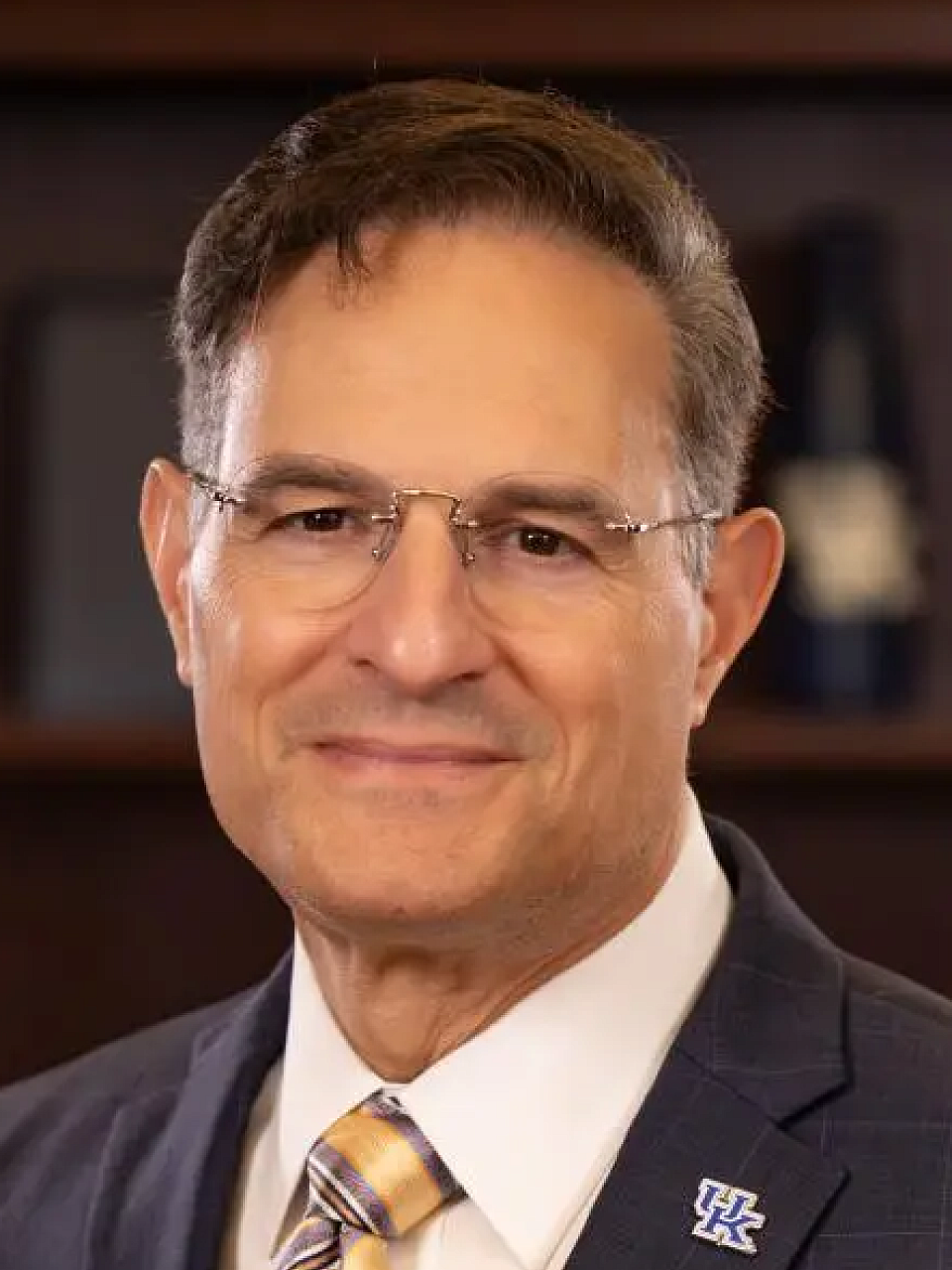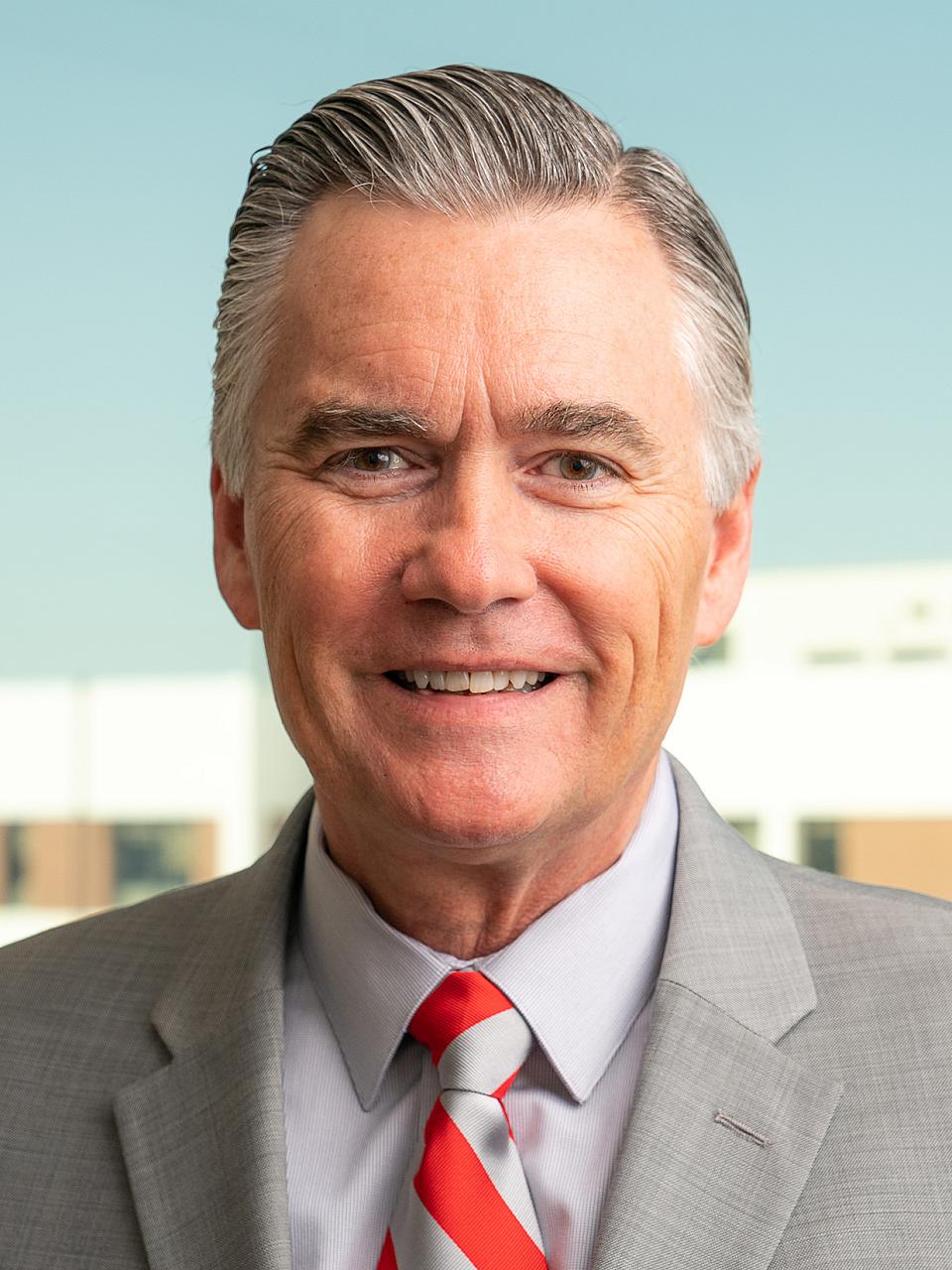Voices of U of U Health
Leaders in Utah and Kentucky Collaborate on Community-Focused Cancer Care
Cancer touches us all. In the U.S., one in two men and one in three women face a cancer diagnosis in their lifetimes.
This summer, leaders from University of Utah Health and UK HealthCare gathered to discuss what we’re doing to address the complex challenges of cancer care.
Learning From Each Other to Improve Communities
Commerce Lexington hosts an annual Leadership Visit to expose local Kentucky leaders to the best ideas from model communities across the country. This year, Salt Lake City was the destination for learning and exchanging ideas.
Relieving the burden of cancer is a topic of interest for Utahns and Kentuckians. Nationally, Utah has the highest rate of melanoma and Kentucky has the highest rate of new cancer cases.
Fortunately, both states are home to National Cancer Institute (NCI)-designated Comprehensive Cancer Centers: Huntsman Cancer Institute at the University of Utah and Markey Cancer Center at the University of Kentucky. This is the highest national standard a cancer center can achieve. Only 57 centers nationwide have this designation.
As part of the Commerce Lexington Leadership Visit, we participated in a panel discussion with Mary Beckerle, PhD, CEO of Huntsman Cancer Institute, and Mark Evers, MD, director of the Markey Cancer Center. We talked about ways to meet the growing need for quality cancer care and research in the Mountain West and Appalachian regions—particularly in rural communities.
Highlights from Cancer Care Panel Discussion
Comprehensive Cancer Care in the Mountain West
Huntsman Cancer Institute serves five states in the Mountain West (Idaho, Montana, Nevada, Utah, and Wyoming), a 524,000-square-mile region covering 17% of the continental U.S. landmass. The region includes 103 million people, 43 American Indian tribes and nations, and more than 35,000 annual cancer cases. As the region's sole NCI-designated Comprehensive Cancer Center, Huntsman Cancer Institute plays a crucial role in providing advanced cancer care and research to this population.
The cancer center has discovered more inherited cancer genes than any other institution in the world. When the National Cancer Act was first established in 1971, cancer was considered a single disease that could be solved with a vaccine. Thanks to the work of many institutions, including unique contributions from Huntsman Cancer Institute in cancer genetics, it is now known that cancer comprises more than 200 different diseases.
Researchers at the institute made significant breakthroughs in understanding the genetic basis of certain cancers. They identified mutations in the APC gene as a cause of colon cancer and linked mutations in the BRCA1 and BRCA2 genes to increased risk of breast and ovarian cancers. These discoveries transformed the way we think about cancer and laid the foundation for more targeted approaches to treatment.
Recognizing people who live in rural areas face worse cancer outcomes, Huntsman Cancer Institute created several programs to expand accessibility to care:
- Huntsman at Home brings specialized cancer care directly to patients in their homes. By providing expert care in familiar surroundings, the program improves patient comfort and decreases health care costs—reducing hospitalizations and emergency department visits.
- The institute’s Cancer Screening and Education Bus brings crucial cancer screening services to remote areas of Utah. The mobile clinic detects a higher proportion of cancers than hospital-based screenings.
- Ask-Advise-Connect, a digital health intervention for smoking cessation and reducing cancer risk, was developed by leaders at Huntsman Cancer Institute. The program is now recommended by the Centers for Disease Control and Prevention (CDC).

Comprehensive Cancer Care in Kentucky
Thirty-eight percent of Kentucky residents live in rural counties. The Markey Cancer Center is particularly crucial for Eastern Appalachian Kentucky, where 45 of 54 rural counties are classified as experiencing persistent poverty.
Existing barriers to health care contribute to worse cancer outcomes in these communities. To extend its impact, Markey Cancer Center has established partnerships with 19 independently operated community hospitals across the state. This network allows the center to bring cancer care closer to home for many Kentucky residents, reducing the need to travel long distances for treatment.
Since achieving NCI designation in 2013 and comprehensive status in 2023, Markey has experienced remarkable growth:
- Now serving all 120 counties in Kentucky
- Recognition as a top 50 cancer hospital by U.S. News & World Report
- 50% increase in unique patients served
To keep up with this growth, the University of Kentucky recently broke ground on a new 550,000-square-foot cancer and advanced ambulatory facility that will include the Markey Cancer Center.
Like Huntsman Cancer Institute, Markey Cancer Center is committed to advancing cancer research with a focus on environmental factors contributing to cancer risk and specific disparities among Kentucky residents.
In 2024, the EXCEL Research Initiative launched from a collaboration with UK HealthCare, the Office of the Vice President for Research at the University of Utah, and UK College of Medicine. EXCEL aims to drive innovation through cross-campus collaborations and deliver even more direct benefits to patients.
Making Cancer Care Accessible to All
As the leading cause of death worldwide, cancer remains a critical issue.
From Huntsman Cancer Institute’s groundbreaking genetic discoveries to Markey Cancer Center’s comprehensive approach to serving high-risk populations in Kentucky, our numbers show the impact of targeted, community-focused cancer care.
This work extends far beyond the walls of our institutions, reaching into homes in rural and other underserved communities.
As we continue to grow and innovate, we’re paving the way for a future where advanced cancer care is accessible to all—regardless of geographic location or socioeconomic status.
Progress is made not just in laboratories, but also in communities—one person at a time.

